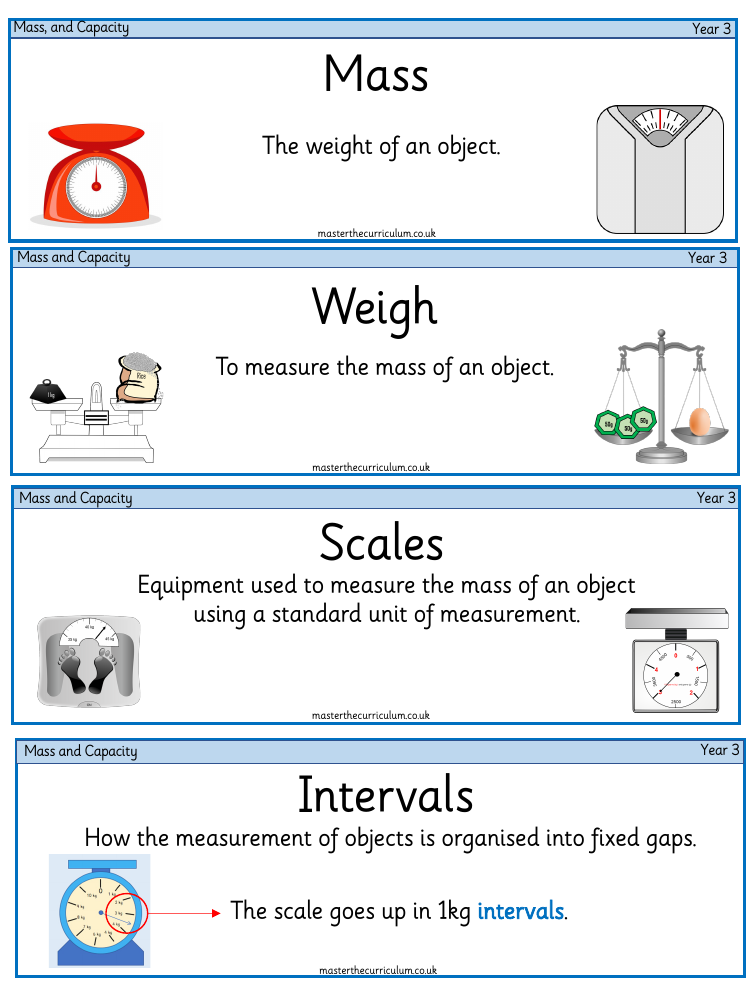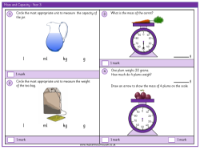Mass and capacity - Vocabulary

Maths Resource Description
For Year 3 students learning about mass and capacity, a range of vocabulary is essential. 'Mass' refers to the weight of an object, and it is measured using scales. The term 'weigh' means to measure the mass of an object. When measuring mass, standard units such as grams (g) and kilograms (kg) are used, where 1,000 grams equal 1 kilogram. 'Intervals' describe the fixed gaps between measurements on a scale, for example, a scale might go up in 1kg intervals. 'Increments' refer to the increases on a fixed scale, like a scale that uses 10g increments.
When discussing capacity, the term refers to the maximum amount that a container can hold. 'Volume' is the amount of space occupied by a liquid or solid. A 'cylinder' is a common shape for containers used to measure volume and capacity. The units of measurement for volume include millilitres (ml) and litres (l), with 1,000 millilitres equalling 1 litre. Other important concepts include 'full', meaning a container has been filled to the top, and 'empty', indicating nothing is in the container. Comparative terms such as 'lighter', 'heavier', 'more than', 'less than', and 'equivalent' are used to describe and compare the mass or capacity of different objects or containers. 'Estimate' is the act of making an educated guess about a value, number, or measurement, which is a useful skill in practical situations.


